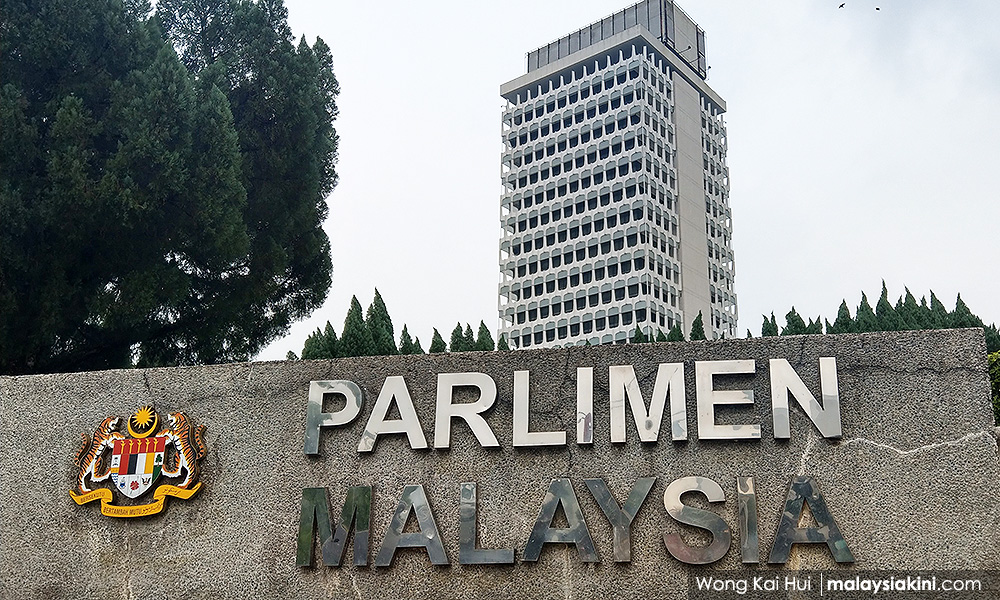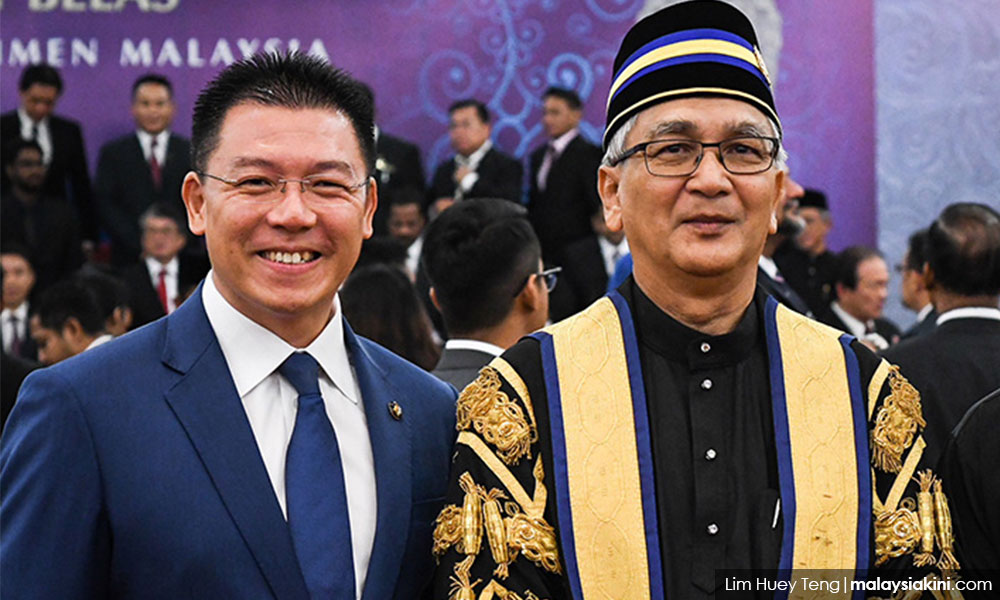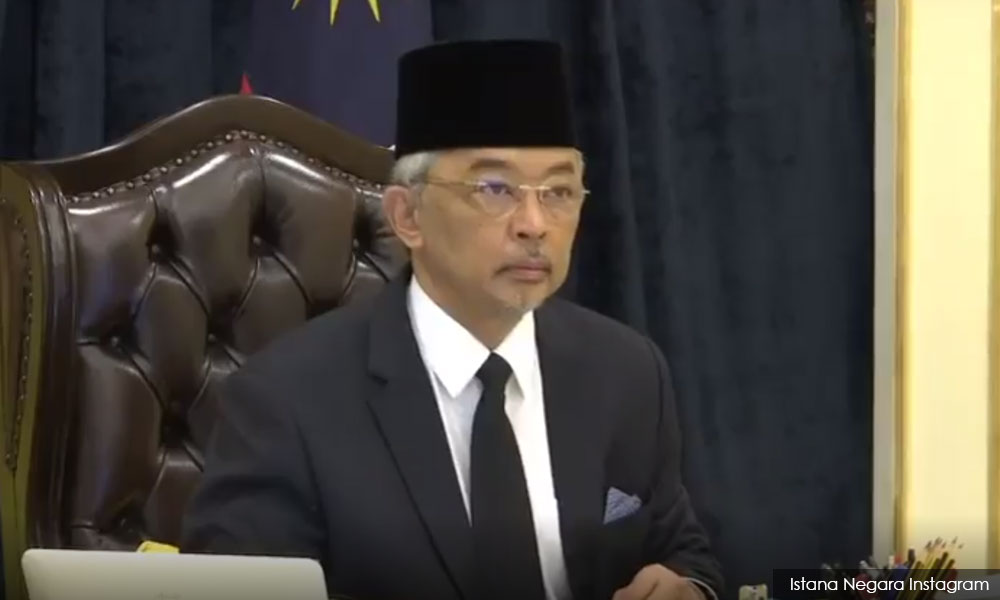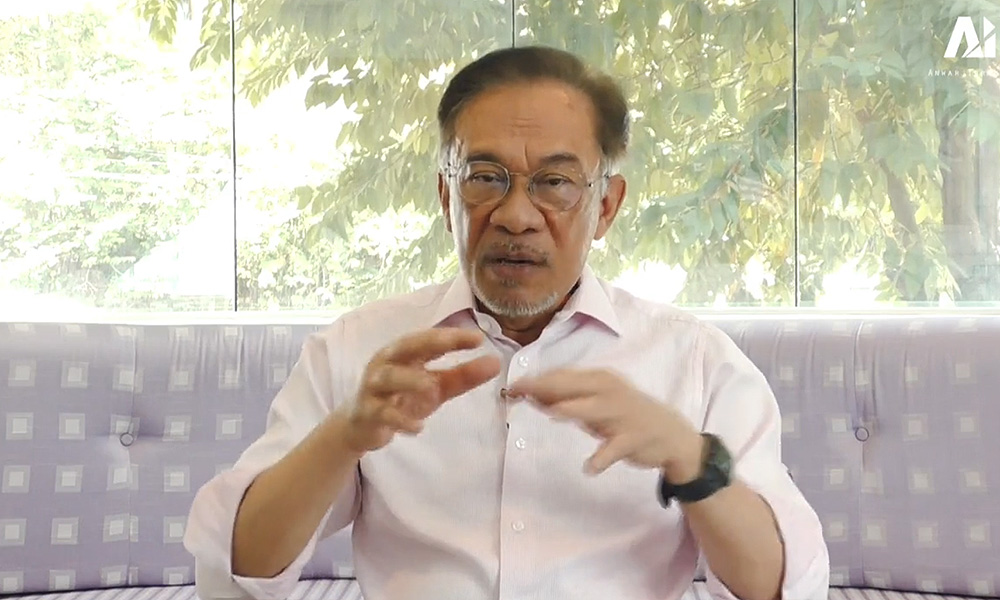
Tomorrow will mark the first proper Dewan Rakyat sitting since Perikatan Nasional took control of Putrajaya in March.
A sitting was held on May 18, albeit just for one day to hear the royal address with no debates and to fulfil constitutional requirements.
These are four main agendas that are expected to crop up.
Muhyiddin Yassin's legitimacy
Once Question Time is over, among the order of business is expected to be four motions by Prime Minister Muhyiddin Yassin (PN-Pagoh) to replace Speaker Mohamad Ariff Md Yusof (below, right) and his deputy Nga Kor Ming (Harapan-Teluk Intan) with Azhar Azizan Harun (non-MP) and Azalina Othman Said (PN-Pengerang) respectively.


This will answer once and for all whether Muhyiddin commands the majority in the Dewan Rakyat.
Based on the seating arrangement in May and defection announcements since then, there should be three key blocs in Parliament - PN (113 seats), Pakatan Harapan (91 seats), and others (18 seats).
However, these numbers are not a definitive indication of Muhyiddin's support level until a vote is called.
According to Article 43(4) of the Federal Constitution, if the prime minister ceases to command the confidence of the majority in Parliament, the prime minister has to resign.
Following this, the Yang di-Pertuan Agong (below) can choose whether to dissolve Parliament to pave way for fresh elections or appoint, in His Majesty's opinion, someone who commands the majority support of the MPs as the new prime minister.

There are four other motions related to Muhyiddin's legitimacy, however, they appear as the last four items in the list of 30 motions.
While three motions - by Nik Muhammad Zawawi Salleh (PN-Pasir Puteh), Mohd Fasiah Mohd Fakeh (PN-Sabak Bernam) and Shahidan Kassim (PN-Arau) - are for the Dewan Rakyat to state their support for Muhyiddin, one motion by Dr Mahathir Mohamad (IND-Langkawi) seeks a resolution that Muhyiddin does not enjoy majority support.
Technically, these four motions are irrelevant since Muhyiddin's support can be proven through the vote on the speaker's removal.
Selection Committee
If Muhyiddin passes the first stage, then he is scheduled to table a motion to place the Selection Committee - a powerful committee that will decide on the number of and composition of Parliament's various committees.
The proposed new members of the Selection Committee are Azmin Ali (PN-Gombak), Hamzah Zainudin (PN-Larut), Fadillah Yusof (PN-Petra Jaya), Abdul Hadi Awang (PN-Marang) and Anwar Ibrahim (below) (Harapan-Port Dickson).
This composition reflected the long-standing tradition of allowing only one member of the opposition - their leader - to sit in the Selection Committee.

The last Selection Committee during the Harapan-administration had expanded the number of Special Select Committees to 10, up from the low single digits maintained by previous governments.
These committees have the authority to conduct investigations, summon witnesses, and scrutinise government finances.
PN's commitment to maintaining the existing Special Select Committees is unknown.
Reform bills
Muhyiddin is also scheduled to table two key Harapan-era bills for second reading. Typically, a bill tabled for second reading would be followed by a debate.
One bill was intended to amend the Federal Constitution to impose a maximum two-term limit for someone to be prime minister, while the other bill was for the formation of the Independent Police Complaints and Misconduct Commission (IPCMC).
Both bills will put Harapan, Warisan, and MPs allied with Mahathir in an awkward position.
On one hand, abstaining or defeating the bill will place a question mark on their commitment to reform which they initiated.
On the other, supporting the bill would be legitimising a government which they argue was formed by MPs without a proper mandate.
Covid-19 bill
A highly anticipated bill to be tabled for first reading is the Covid-19 relief bill.
Although Putrajaya had yet to explicitly state the purpose of the new law, Finance Minister Tengku Zafrul Tengku Abdul Aziz (below) hinted that one will receive temporary relief from contractual obligations if one was to be affected by the Covid-19 outbreak.

Zafrul said the law will be similar to ones recently passed in New Zealand and Singapore.
Singapore passed the Covid-19 (Temporary Measures) Act 2020 in April and gazetted it two days later.
Essentially, the law disallowed one party from taking legal action against a person seeking temporary relief.
The likely impact of the law is to prevent a deluge of bankruptcies resulting from businesses collapsing due to the Covid-19 outbreak. - Mkini


No comments:
Post a Comment
Note: Only a member of this blog may post a comment.